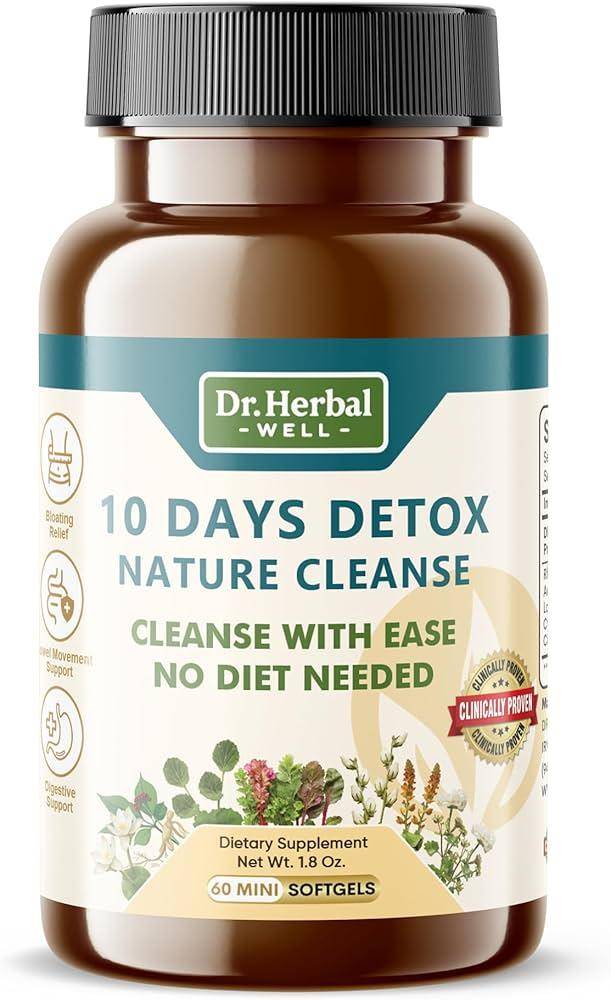In a world where wellness trends often sweep through social media like wildfire, detox teas have emerged as a popular choice for those seeking a fast fix for a healthier lifestyle. From vibrant packaging adorned with promises of cleansing and rejuvenation to testimonials from enthusiastic users, it’s easy to get swept up in the allure of these herbal brews.But beneath the surface of appealing marketing lies a complex web of claims, benefits, and potential pitfalls. In this article, we will explore the truth about detox teas, examining their ingredients, purported effects, and the science (or lack thereof) that surrounds them. prepare to sip on a cup of clarity as we navigate the murky waters of detoxification and discover what these teas really have to offer.
Table of contents
- The Rise of Detox Teas in Modern Wellness Culture
- Understanding What Detox Teas Claim to Do
- The Ingredients behind detox Teas: What to Look For
- The Science (or Lack Thereof) Behind Detoxification
- Potential Benefits of Detox Teas: Separating Fact from fiction
- The risks and Side Effects of Detox Tea Consumption
- How Detox Teas Fit into a Balanced Lifestyle
- Expert Recommendations: alternatives to Detox Teas
- User Experiences: Testimonials and Cautionary Tales
- Making Informed Choices: Evaluating Detox Tea Products
- Final Thoughts on Detox Teas: A Pathway to Wellness or a Marketing puzzle?
- Q&A
- Insights and conclusions
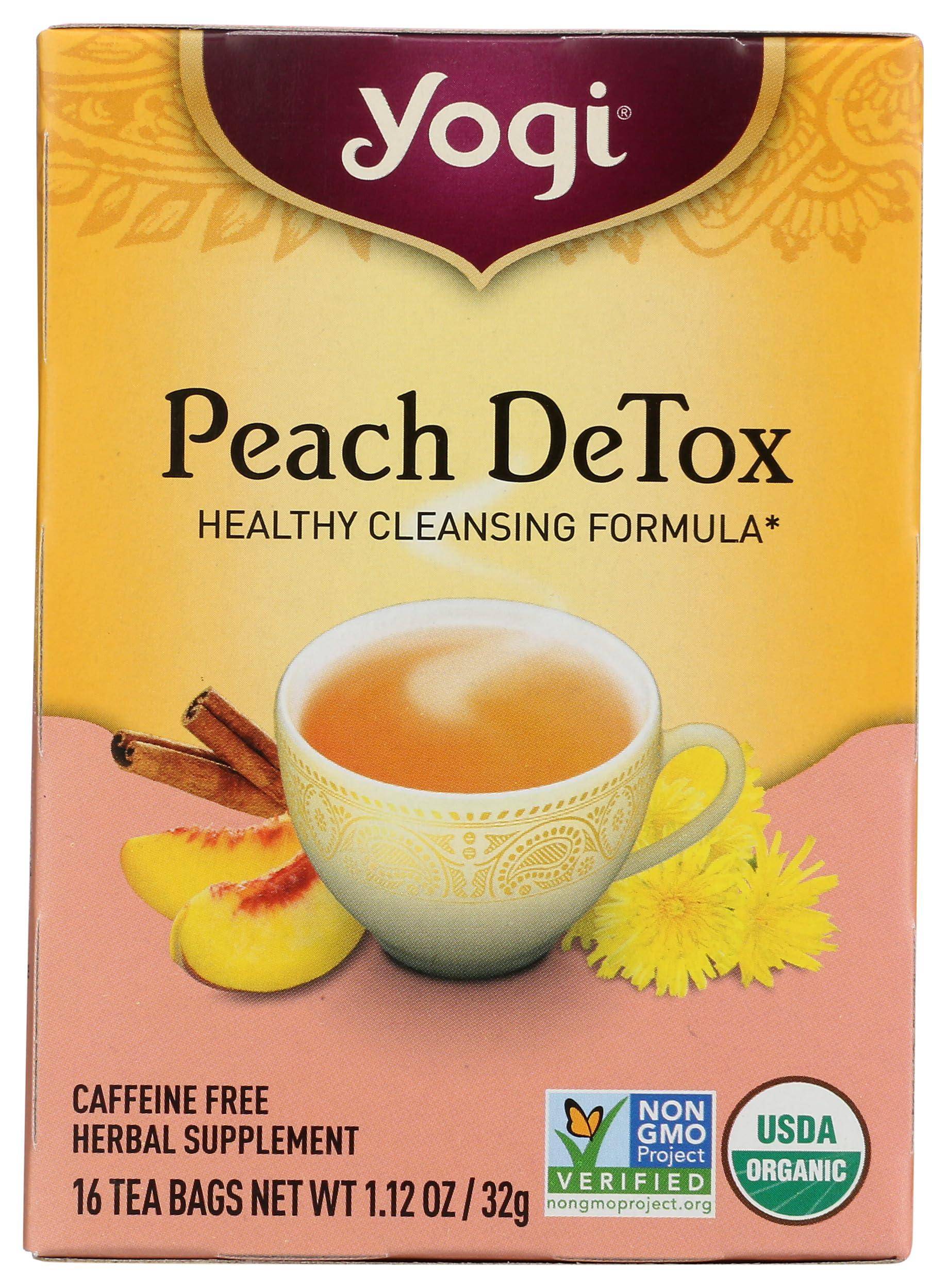
The Rise of Detox Teas in Modern Wellness Culture
In recent years,detox teas have surged in popularity,becoming a staple in many individuals’ wellness routines. Advertisements saturate social media platforms, showcasing vibrant packaging and enticing promises of cleansing and rejuvenation.As people increasingly turn to natural remedies, these brews have positioned themselves as not just beverages, but as lifestyle choices. The allure lies in their potential to support bodily functions, promote skin clarity, and enhance overall wellness—all packaged neatly in a cup of herbal infusion.
detox teas are often marketed with playful narratives about removing toxins and aiding in weight loss. while ingredients can include an array of herbs, fruits, and spices, the combinations vary widely. Common components found in these teas may include:
- Green tea — known for its antioxidants and metabolism-boosting properties
- Dandelion root — frequently enough used for its potential liver-supporting benefits
- Lemon — celebrated for its vitamin C content and refreshing taste
- Ginger — revered for its anti-inflammatory effects and digestive support
Though, as the trend continues to grow, the conversation must shift toward understanding what detox actually means. The human body already possesses a well-functioning system to eliminate waste, relying primarily on the liver, kidneys, and digestive tract. Many experts argue that the claims surrounding detox teas can be misleading and that the promise of ‘detoxification’ often oversimplifies the complex processes of human physiology. It raises questions about the efficacy and safety of consuming these teas regularly, especially for those with specific health conditions.
Furthermore, while these teas can provide a delightful beverage option and a moment of self-care, it’s essential to approach them with a discerning eye. Many commercially available detox teas may contain additives or high levels of caffeine, which can pose risks, particularly for sensitive individuals. Assessing the ingredients and understanding where they come from can help consumers make informed choices that align with their health goals. Below is a simple comparison of popular detox tea types and important factors to consider:
| Tea Type | Key Ingredients | Potential Benefits | Considerations |
|---|---|---|---|
| Herbal Detox | Peppermint, ginger, dandelion | Digestive health support | May cause allergic reactions |
| Green Tea | Green tea leaves, lemon | Antioxidant-rich | High caffeine content |
| Detox Blends | Various herbs and spices | Potentially boosts metabolism | Lack of scientific backing |
As we navigate this wellness craze, understanding the truths and myths surrounding detox teas is crucial. Consumers should consider their individual health goals,seek advice from healthcare professionals,and remain open to choice,evidence-based wellness strategies. Ultimately, the rise of detox teas invites a broader discussion about holistic health practices, food choices, and the importance of maintaining a balanced lifestyle without relying solely on trendy solutions.
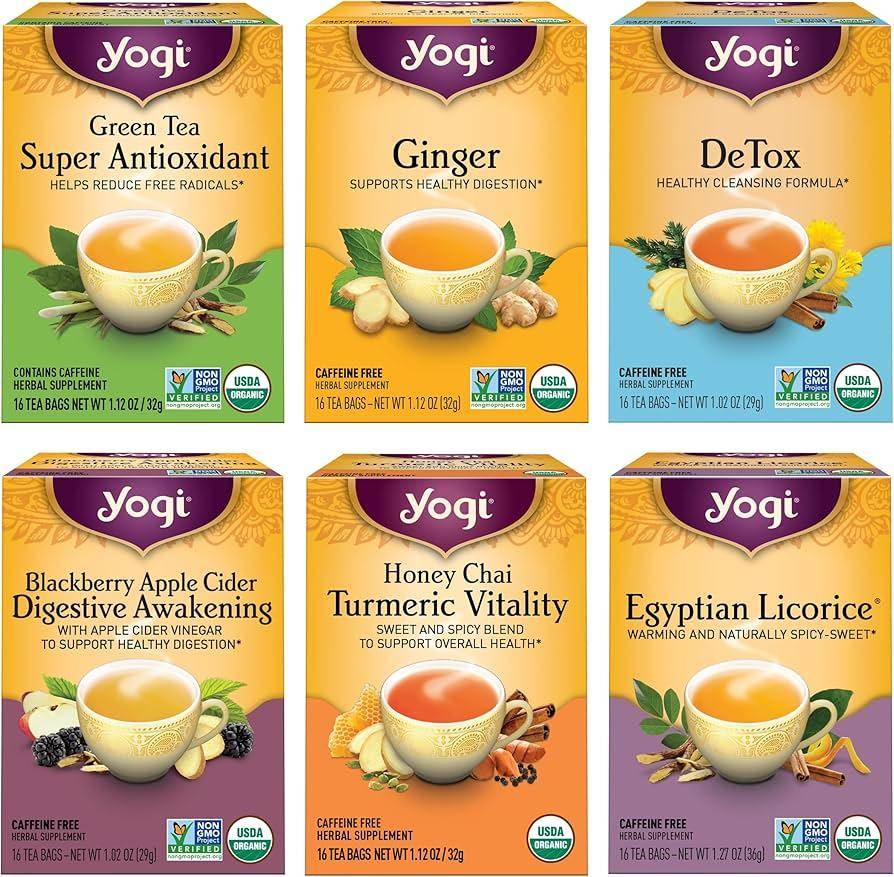
Understanding What Detox Teas Claim to Do
Detox teas have become a popular trend in the wellness community, often touted as a magical solution for a variety of health concerns. However, it’s essential to separate the hype from the reality. Most detox teas claim to promote weight loss, aide digestion, and remove toxins from the body. These statements can be misleading, as they often lack scientific backing and rely on anecdotal evidence to persuade consumers.
The concept of detoxification is alluring—who wouldn’t want to rid their body of undesirable substances? However, the human body is equipped with its own mechanisms for detoxifying through the liver, kidneys, and digestive system. While certain herbal ingredients in detox teas may provide mild diuretic effects or digestive support,the idea that these beverages can dramatically cleanse the body or lead to significant weight loss is frequently enough exaggerated.
It is indeed also crucial to recognize the role that ingredients in detox teas play. Common components, like green tea, ginger, and peppermint, can offer some health benefits, including improved metabolism and enhanced digestion. Yet, their effectiveness can vary from person to person, and reliance solely on these teas without maintaining a balanced diet can lead to unfulfilled expectations.
Moreover, many detox teas contain laxatives or other stimulants that can potentially lead to adverse side effects. As an example,excessive use can result in dehydration,diarrhea,and even dependency on laxatives for regular bowel movements. It’s crucial to read the ingredient list and understand what you are consuming, as some ingredients might do more harm than good in the pursuit of detoxification.
| Claim | Reality |
|---|---|
| Promotes rapid weight loss | Temporary water weight loss, not lasting |
| Removes toxins | Body naturally detoxifies itself |
| Aids digestion | Some ingredients may help, but not a cure-all |
| Increases energy | Possible short-term effects; caffeine may cause jitters |
Ultimately, while detox teas can fit into a broader wellness routine, they should not be viewed as a standalone solution. Individuals seeking to improve their overall health are better off focusing on a balanced diet, regular exercise, and staying hydrated, rather than relying solely on a cup of tea. Remember, a holistic approach to health often yields more beneficial and lasting results than quick-fix solutions.
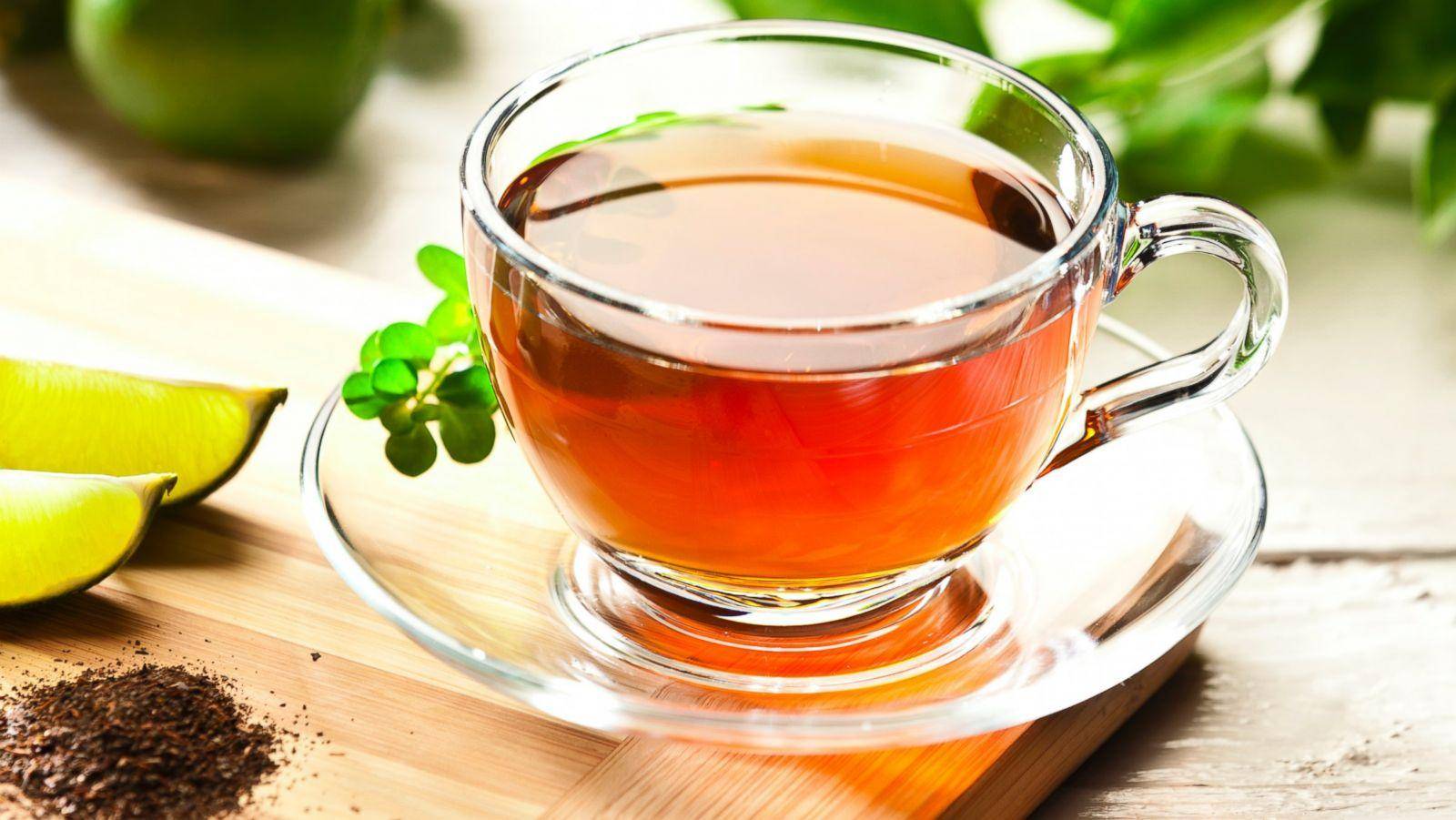
The Ingredients Behind Detox Teas: What to look For
When exploring the world of detox teas, it is essential to know which ingredients are beneficial and which ones may not live up to their promises. Understanding the composition of these blends can empower you to make informed choices. You’ll often find highly regarded natural elements that can help improve your overall wellness.
Key Ingredients People Trust:
- Green Tea: Rich in antioxidants known as catechins, it has been linked to improved metabolism and fat burning.
- Dandelion Root: Traditionally used for liver support, this herb may help promote detoxification.
- Ginger: Known for its anti-inflammatory properties, ginger can aid digestion and reduce bloating.
- Lemon: Packed with vitamin C, lemon juice can enhance hydration and assist in detoxifying the body.
Some detox teas also contain herbal blends aimed at specific needs. For example, ingredients like peppermint or chamomile can serve dual purposes—offering detoxifying benefits while promoting relaxation and digestive comfort.However, it’s vital to look for specific certifications to ensure purity and quality.
What to Avoid:
- Laxatives: Some teas use harsh laxatives to induce rapid weight loss, which can lead to dehydration and electrolyte imbalances.
- Artificial Sweeteners: These can counteract the health benefits you seek from naturally detoxifying ingredients.
- Excessive Caffeine: High levels can lead to nervousness, insomnia, and increased heart rate.
| Ingredient | Benefits |
|---|---|
| Green Tea | Boosts metabolism and provides antioxidants. |
| Dandelion Root | Supports liver function and aids digestion. |
| Ginger | Reduces inflammation and improves digestive health. |
| Lemon | Enhances hydration and immune function. |
Ultimately, the effectiveness and safety of detox teas depend largely on their ingredients. Taking the time to research and identify high-quality products can help ensure you are making the right choices for your health journey. Always consider consulting with a healthcare professional before making any significant dietary changes.
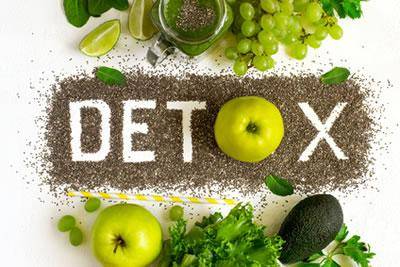
The Science (or Lack Thereof) Behind Detoxification
When it comes to detoxification,much of the conversation is steeped in myth rather than science. Detox teas often advertise the ability to cleanse the body of toxins, but the reality is that our bodies are remarkably adept at self-cleaning. The liver, kidneys, and digestive system all work tirelessly to filter and eliminate waste products without any need for special diets or herbal concoctions. this natural detoxification process is crucial for maintaining overall health, and while proponents of detox teas claim to support this process, their efficacy is largely unproven.
Many detox teas contain a mix of herbs, some of which are indeed beneficial for digestive health. Ingredients like ginger, peppermint, and dandelion root can help soothe the stomach and may provide mild diuretic effects. However, the benefits of these ingredients often do not warrant the high price tag that detox tea blends carry. Moreover, the doses found in these teas might potentially be insufficient to deliver any significant health improvements. Consuming these ingredients in moderation through a well-balanced diet may yield better results without the risks associated with overly relying on detox products.
another major concern with detox teas is their potential side effects. many of these products contain laxatives, which can lead to dehydration and electrolyte imbalances, especially when consumed in large quantities over time. Some brands even use questionable practices, marketing their products as “natural,” while containing synthetic additives or hidden stimulants that can interfere with bodily functions. it’s essential for consumers to scrutinize the ingredients list before jumping on the detox bandwagon.
This brings us to the concept of “toxins.” The term is frequently enough used vaguely in marketing, which can mislead consumers into thinking they are harboring dangerous substances in their bodies. However, the body’s detoxification pathways primarily tackle substances such as metabolic waste, dietary residues, and environmental pollutants. The actual levels of these “toxins” in a healthy individual are generally within a range that poses little risk.Rather of relying on detox drinks, adopting a sustainable lifestyle that includes hydration, nutrient-rich foods, and regular exercise is far superior for maintaining bodily health and balance.
the allure of detox teas lies largely in the promise of a quick fix for well-being. However, for those seeking genuine health improvements, focusing on a balanced lifestyle is more effective than transient detox trends. Traditional medical science advocates for moderation and consistency, emphasizing the body’s innate ability to regulate itself. By fostering healthy habits, individuals can achieve wellness naturally, removing the need for detox beverages that perpetuate more myths than they solve.
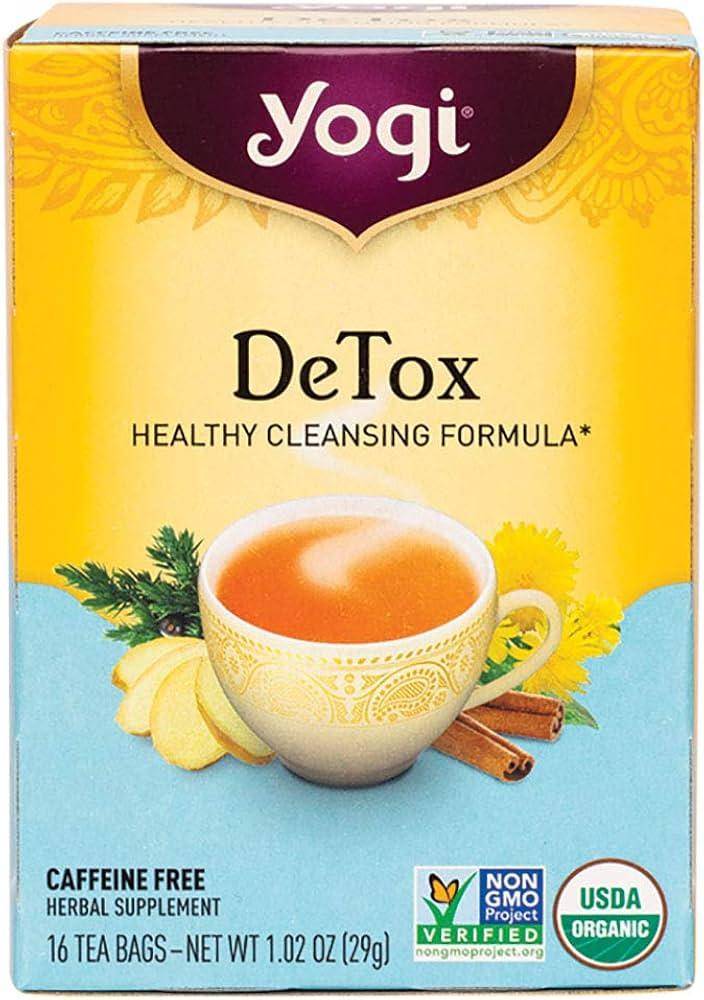
Potential Benefits of Detox Teas: Separating Fact from Fiction
Detox teas have gained popularity in wellness circles, often marketed as miracle brews capable of cleansing the body of toxins and promoting weight loss. But what does the research say? It’s crucial to approach these claims with a discerning eye. Some benefits that proponents claim include increased hydration,improved digestion,and weight management,but these should be examined carefully.
Hydration is essential for overall health,and drinking detox teas can contribute to your daily fluid intake. Many of these teas contain herbal ingredients that not only promote fluid intake but also provide a comforting ritual. Enhanced hydration can improve skin health, promote kidney function, and maintain energy levels. Though, water alone can suffice for hydration needs without the added herbs or flavorings.
Another commonly mentioned benefit is improved digestion. Some detox teas include ingredients like ginger and peppermint, known for their digestive properties. While these components can relieve occasional bloating or discomfort, relying solely on detox teas for digestive health may overlook the importance of a balanced diet rich in fiber. A diversified diet can realistically support the digestive system more effectively than any single beverage.
Weight management is a hallmark of detox tea marketing. some blends claim to aid in weight loss through increased metabolism or appetite suppression. However, many studies affirm that any weight loss is usually attributed to reduced calorie intake rather than the tea itself. A healthy lifestyle combining nutrition and exercise remains the most reliable approach to weight loss, making detox teas less of a magic solution than advertised.
Lastly, the idea of cleansing the body of toxins is a nebulous concept. The human body has its own refined systems in place—namely the liver and kidneys—that effectively filter out harmful substances. While elements in certain detox teas may support these organs, the notion of detoxification through tea alone can be misleading.Dependency on herbal teas for detox can overshadow the importance of overall health practices, such as a balanced diet and suitable exercise routines.
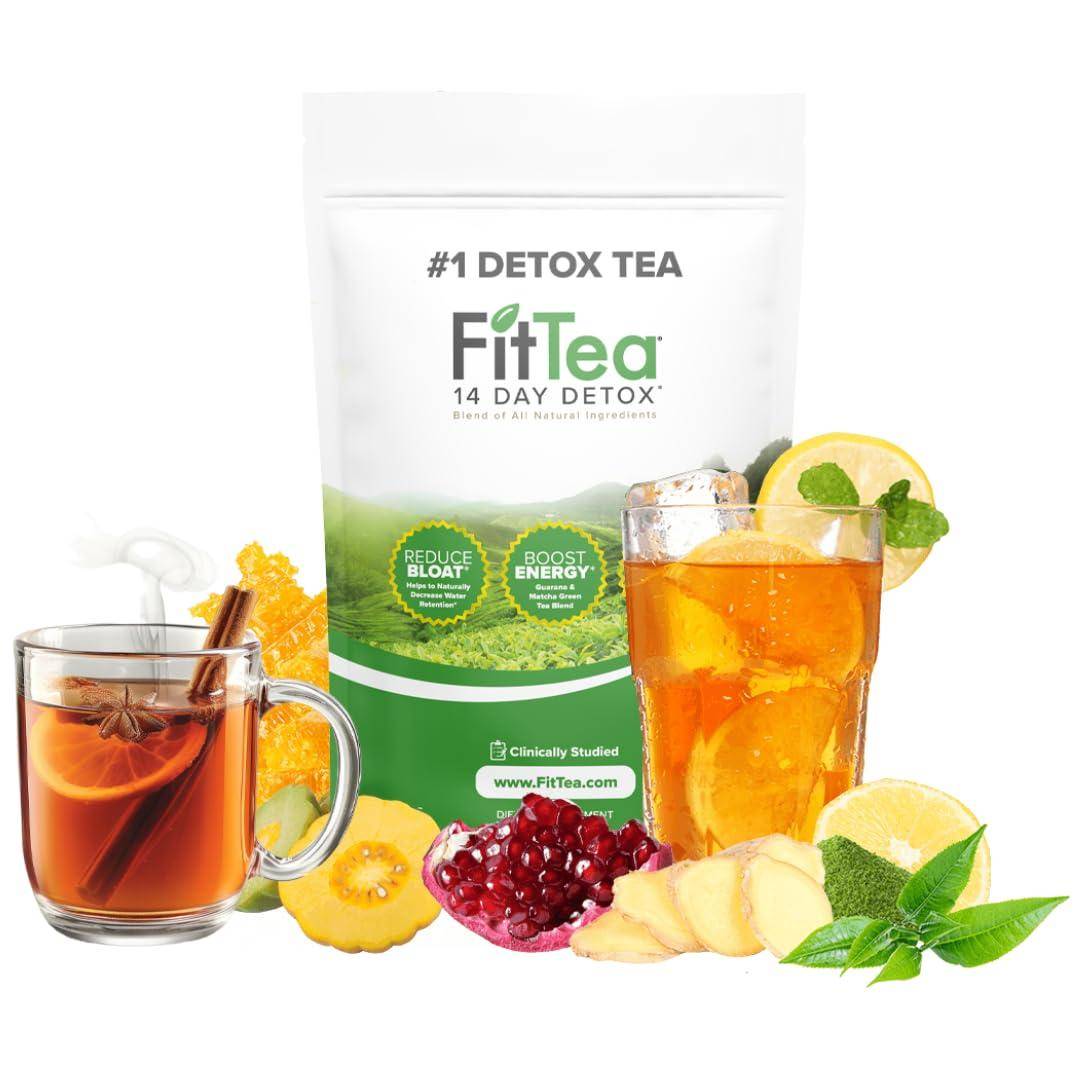
The Risks and Side Effects of Detox Tea Consumption
While detox teas are frequently enough marketed as a quick fix for weight loss and cleansing,their consumption can carry a variety of risks and side effects that users should be aware of. Many of these teas contain potent herbal ingredients that can lead to adverse reactions, especially for those with existing health conditions. Before diving into a detox regimen, it’s crucial to understand what these risks entail.
One prominent concern regarding detox teas is their potential for dehydration. Many of these products are diuretics, which promote increased urination. This effect can lead to a significant loss of fluids and electrolytes, resulting in symptoms such as:
- Weakness
- Dizziness
- Fatigue
- Headaches
Moreover, certain ingredients commonly found in detox teas can lead to digestive disturbances. Ingredients like senna and other laxatives can cause cramping and diarrhea, which may seem like a cleansing effect but can disrupt normal bowel function. Over time,relying on these teas could result in:
- Dependency on laxatives
- Altered gut flora
- Nutrient deficiencies
Potential allergic reactions are another serious consideration. While many herbal ingredients are naturally sourced, they may still pose risks for individuals with specific allergies. Common allergens can include:
- Licorice root
- Chamomile
- Various fruit extracts
It’s crucial to read labels carefully and, if you’re unsure, consult with a healthcare professional before starting any detox tea.
the long-term use of detox teas can lead to liver damage, particularly those containing high quantities of herbal extracts. Some ingredients, like kava or comfrey, have been associated with serious liver issues. Here’s a simple overview of some ingredients of concern:
| Ingredient | Potential Risk |
|---|---|
| Kava | Liver damage |
| Comfrey | Toxic to the liver |
| Senna | Bowel dependency |
while detox teas may promise quick results, the associated risks and side effects ought to be carefully considered. Users should approach these products with caution, weighing potential benefits against the possible health issues they could create.
How Detox Teas Fit into a Balanced Lifestyle
Incorporating detox teas into your daily regimen can complement a balanced lifestyle when approached with mindfulness and moderation. These herbal blends often contain natural ingredients known for their potential health benefits, such as aiding digestion and providing antioxidants. Though, it’s essential to remember that detox teas are not a magic solution for health or weight loss; rather, they should be viewed as part of a broader wellness strategy.
To make the most of your detox tea experience, consider pairing it with a diet rich in whole foods. Consuming plenty of fruits, vegetables, whole grains, and lean proteins helps support the body’s natural detoxification processes. Here’s a brief overview of foods that work harmoniously with detox teas:
- Leafy greens: Spinach, kale, and collard greens
- Fruits: Berries, citrus fruits, and apples
- Nuts and seeds: Almonds, chia seeds, and flaxseeds
- whole grains: Quinoa, brown rice, and oats
Hydration is another key component of a balanced lifestyle. Drinking sufficient water throughout the day not only helps flush toxins but also enhances the effects of detox teas. Ideally, you should aim for at least eight 8-ounce glasses of water daily, but this can vary based on individual needs and levels of physical activity. Consider the following tips for effective hydration:
- Infuse your water with slices of fruits like lemon or cucumber for added flavor.
- Set reminders on your phone to drink water at regular intervals.
- Keep a refillable bottle with you to track your intake.
Physical activity is an integral part of any balanced lifestyle. Regular exercise not only supports overall health but also enhances the body’s natural detoxification systems.Engaging in both aerobic and strength-training exercises can help improve circulation and promote lymphatic drainage, thereby enhancing the detoxification process. You might consider the following activities to incorporate into your routine:
- Cardio: Running, swimming, cycling, or dancing
- Strength training: Using weights or resistance bands
- Yoga: To promote relaxation and flexibility
it’s important to listen to your body and consider individual responses to detox teas. Some people may experience health benefits, while others might face digestive discomfort. To better understand how your body reacts, try keeping a journal to track how you feel before and after consuming detox teas, along with any other dietary changes. This will provide clarity on the role of detox teas in your personal wellness journey.
Expert Recommendations: Alternatives to detox Teas
Many individuals looking to cleanse their bodies may be enticed by the promise of detox teas. Though, experts suggest that sustainable lifestyle changes frequently enough yield better results than quick-fix solutions. Here are some alternatives recommended by health professionals:
- Whole Foods Diet: Focus on consuming a variety of fruits,vegetables,lean proteins,and whole grains. This not only supports detoxification but also provides necessary nutrients for overall health.
- Hydration: Drinking plenty of water is essential for flushing out toxins. Aim for at least 8 glasses a day, or more if you’re physically active or in a hot climate.
- Regular Exercise: Physical activity stimulates circulation and promotes the elimination of toxins through sweat. aim for at least 150 minutes of moderate exercise or 75 minutes of vigorous activity weekly.
- Meditation and Stress Management: High stress levels can hinder your body’s natural detox processes.Incorporating mindfulness practices can promote relaxation and enhance overall well-being.
- Quality Sleep: Ensure you’re getting enough restorative sleep each night, as this is when your body naturally repairs and detoxifies itself.
in addition to these lifestyle changes, some foods and beverages can substantially aid your body’s detoxification process. Consider adding the following options to your diet:
| Food/Beverage | Benefits |
|---|---|
| Leafy Greens | Rich in nutrients that promote liver health. |
| Beets | Supports liver function and boosts bile production. |
| Lemon Water | Enhances hydration and supports digestion. |
| Ginger | Helps reduce inflammation and improves gut health. |
Another expert recommendation is to consider herbal supplements that support detoxification without the potentially harsh effects of detox teas. Some popular choices include:
- Milk Thistle: This herb is known for its liver-protective properties and helps improve liver function.
- Dandelion Root: Often used to support digestive health and liver function.
- Nettle Leaf: Acts as a natural diuretic,promoting urine production to help eliminate toxins.
Lastly,incorporating fermented foods into your diet can significantly enhance gut health,which is crucial for detoxification. Options such as:
- kefir: A fermented dairy drink packed with probiotics.
- Kimchi: A spicy fermented cabbage that’s rich in beneficial bacteria.
- Sauerkraut: Fermented cabbage that promotes healthy digestion.
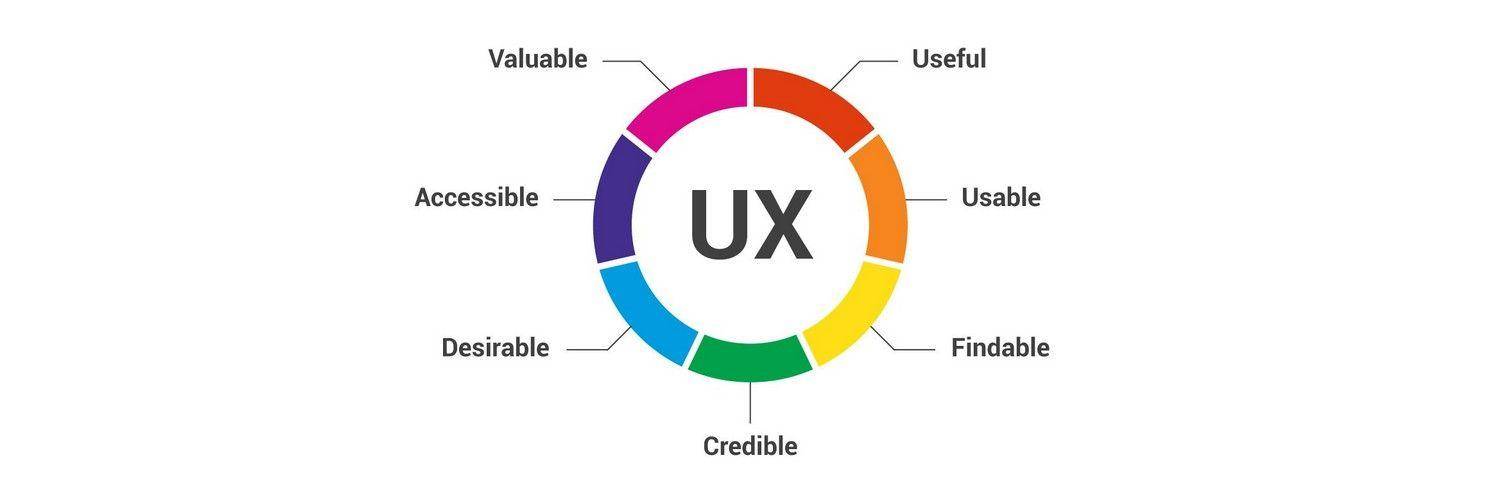
User Experiences: Testimonials and cautionary Tales
Many individuals have shared their journeys with detox teas, highlighting both benefits and challenges. A recent user, Samantha R., described her experience as a mix of excitement and disappointment. Initially drawn to the idea of a simple detox solution, she found herself reliant on the tea for everyday energy. While she noticed a brief boost in her energy levels, the subsequent crashes left her feeling more drained than before.
Another user, Michael T., praised one particular brand for helping him jumpstart his weight loss journey. He reported losing a modest amount of weight but later felt questionable about the sustainable nature of this quick fix. as he continued his detox routine, he noticed an uptick in anxiety and increased trips to the bathroom. This cultivation of discomfort led him to reassess whether the product was truly beneficial.
Becky J., a fitness enthusiast, decided to document her experience on social media, noting both the positives and drawbacks of using the tea. Her vibrant posts showcased clearer skin and an initial feeling of lightness. However, she transparently shared a cautionary tale when she experienced digestive distress, which prompted her to halt the consumption.Her conclusion? The detox effect may vary greatly from person to person.
| User | Experience | Outcome |
|---|---|---|
| Samantha R. | Boosted energy, followed by crashes | Felt more drained |
| Michael T. | Initial weight loss, increased anxiety | Reassessing the detox benefits |
| Becky J. | Clear skin, digestive distress | Chose to stop consumption |
User experiences with detox teas vary widely, serving as both testimonials to the benefits and cautionary tales about the potential pitfalls. Many embark on the journey believing in the magic of detoxification but soon discover that the results may not align with their expectations.It’s essential for consumers to approach these products critically and consider personal health needs before diving into a detox regimen.
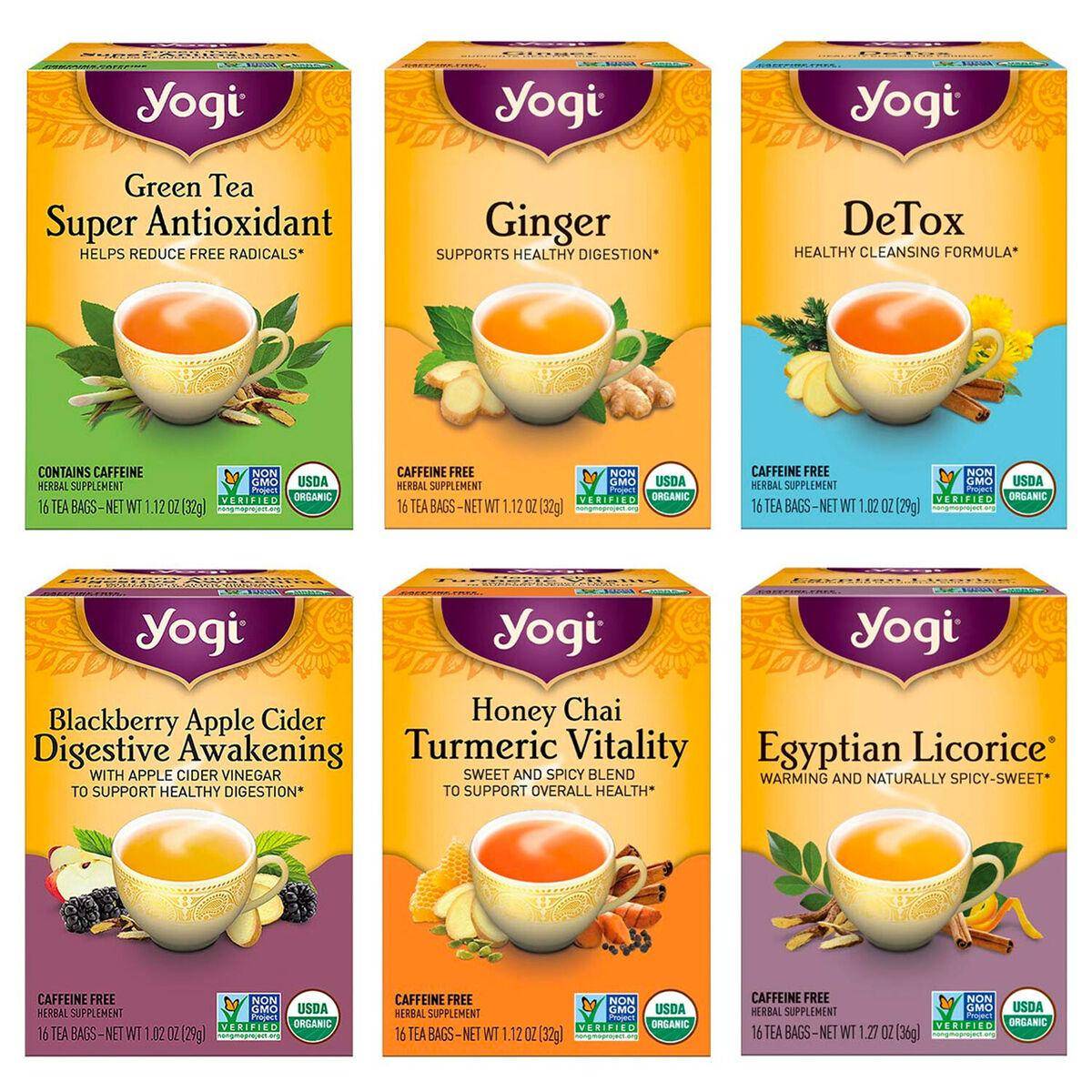
Making Informed Choices: evaluating Detox Tea Products
when it comes to choosing a detox tea product, it’s essential to look beyond appealing marketing and trendy packaging.A reputable product should provide transparent ingredient lists that include natural, recognizable components. Be wary of teas that include ambiguous terms like “herbal blend” or “proprietary formula,” as these can frequently enough disguise harmful additives or untested ingredients.
Consider the benefits and claims made by detox tea brands. are they backed by scientific research? Question products that promise rapid weight loss or detoxification within days, as these frequently enough rely on laxatives or diuretics, which could result in more harm than good. Instead, seek out teas that promote overall well-being and a balanced lifestyle without unrealistic expectations.
Another crucial factor is the brand’s reputation and customer feedback. Look for reviews from verified users to gauge their experiences. Products praised for effectiveness and safety should be prioritized over those with mixed or negative feedback. Researching third-party reviews can give you an unbiased perspective,illuminating potential red flags to avoid.
Price can sometimes be indicative of quality, but it’s vital to analyze the value you are getting. Here’s a simple comparison to help you decide:
| Brand | Price per 20 tea bags | Main Ingredients |
|---|---|---|
| Brand A | $15 | Green Tea, Ginger, Lemon |
| Brand B | $10 | Herbal Blend, Senna Leaf, Chamomile |
| Brand C | $20 | Organic Pu-erh, Peppermint, Dandelion Root |
Lastly, it’s important to consider personal health conditions. Pregnant women, those with certain medical conditions, or anyone on medication should consult a healthcare provider before introducing detox teas into their routine. Everyone’s body responds differently; thus, a detox tea that works for one person may not be suitable for another. Prioritizing your health by making educated decisions fosters not just wellness but also ensures a safer and more enjoyable detox experience.
Final Thoughts on Detox Teas: A Pathway to Wellness or a Marketing Puzzle?
The rising popularity of detox teas has sparked a riveting debate about their effectiveness and purpose. On one hand, these herbal concoctions promise a wide range of benefits, from weight loss to improved digestion, which appeals to those seeking a quick remedy for their wellness struggles. Yet, the question remains: are these teas genuinely fostering health, or merely serving as a clever marketing strategy? When examining their true impact, it is crucial to delve beyond the alluring packaging and claims.
Many detox teas often incorporate ingredients such as herbs, antioxidants, and botanical extracts, believed to support bodily functions. Some commonly used elements include:
- Dandelion root: Known for its potential diuretic properties.
- Green Tea: Rich in catechins that may support metabolism.
- Ginger: Often favored for its soothing effects on digestion.
While these components can offer health benefits, their effectiveness relies heavily on individual lifestyle choices, such as diet and exercise.Relying solely on these teas without addressing overall health and wellness may lead to disappointment.
Moreover, the lack of rigorous scientific studies validating the extensive claims made by detox tea marketers raises eyebrows. Some research suggests their benefits may be minimal or short-lived. As a notable example, a study highlighted the role of such teas in temporary weight loss primarily due to increased water loss rather than fat loss.Consequently, the results could be less about detoxification and more about fluid balance.
it’s necessary to approach the concept of detoxification with a balanced viewpoint. The human body is inherently efficient at eliminating toxins through natural processes managed by the liver, kidneys, and other organs. This raises the question of whether detox teas are genuinely enhancing wellness or merely acting as a placebo, capitalizing on consumer desire for quick fixes in a wellness-obsessed culture.
As consumers, cultivating an informed perspective is crucial when deciding to incorporate detox teas into your routine. While some may find enjoyment and comfort in the ritual of sipping tea,acknowledging it should not replace a healthy lifestyle. Embracing a holistic approach, including a balanced diet, regular physical activity, and mindful practices, will likely lead to a more sustainable pathway to wellness.
Q&A
Q&A: The Truth About Detox Teas
Q1: What exactly are detox teas?
A1: Detox teas are herbal blends marketed as beverages that help cleanse the body of toxins, promote weight loss, and improve overall health. They often contain a mix of ingredients like herbs, spices, and sometimes additional supplements, with claims ranging from increased metabolism to enhanced digestion.
Q2: Are detox teas effective for detoxifying the body?
A2: The concept of ”detoxifying” through drinks is a bit of a misnomer. Our bodies are equipped with powerful organs, like the liver and kidneys, that naturally eliminate toxins without the need for special teas. While certain herbs in these teas may support digestion or hydration, there isn’t robust scientific evidence backing the effectiveness of detox teas in removing toxins from the body.
Q3: Do detox teas really help with weight loss?
A3: Some individuals do experience temporary weight loss when consuming detox teas, typically due to increased water loss or decreased calorie intake. However,this weight loss is often not sustainable.Many detox teas can also lead to dehydration and do not promote long-term lifestyle changes necessary for real, lasting weight loss.
Q4: Are there any health risks associated with drinking detox teas?
A4: Yes, there can be health risks. Some detox teas contain laxatives, which can lead to dehydration, nutrient loss, and digestive issues.In extreme cases, excessive consumption can even result in more serious health problems. It’s crucial to read labels and consult health professionals before diving into any detox regimen.
Q5: Can detox teas interact with other medications?
A5: Absolutely.Certain herbs used in detox teas can interact with medications, altering their effectiveness or causing unwanted side effects. For instance, some ingredients might increase the risk of bleeding when taken with blood thinners. Always consult a healthcare provider if you’re on medication and considering adding detox teas to your routine.
Q6: Are there any benefits to drinking detox teas?
A6: While the term “detox” might potentially be misleading,some detox teas can promote hydration and encourage the consumption of herbal compounds that might support digestion and provide antioxidants. The ritual of preparing and sipping a warm beverage can also contribute to relaxation and mindfulness—a beneficial stress relieving practice on its own.
Q7: What should I consider if I want to try a detox tea?
A7: If you’re curious about trying detox tea, first consider your health goals and whether they align with the tea’s purported benefits. Look for products that are transparent about their ingredient list and avoid those with high caffeine or excessive laxatives. It’s also wise to consult a healthcare professional to tailor your approach to your personal health needs.
Q8: What are healthier alternatives to detox teas?
A8: Rather of resorting to detox teas, focus on a well-rounded diet rich in fruits, vegetables, whole grains, and lean proteins. Staying hydrated with water, herbal teas, and practicing mindful eating can also substantially contribute to your wellbeing without the potential risks associated with trendy detox methods.
Q9: What’s the bottom line on detox teas?
A9: The allure of detox teas is seductive, but it’s important to approach them with a critical eye. While they may provide a pleasant experience, they aren’t a magic solution for detoxification or weight loss. Prioritize sustainable health practices and consult with healthcare professionals for guidance tailored to you. Enjoy your cup, but keep your expectations grounded!
insights and Conclusions
As we draw the curtain on the saga of detox teas, it’s clear that the landscape is as complex as the ingredients themselves. While these vibrant brews may promise a quick fix for health and wellness, it’s essential to sift through the claims and appreciate what the science has to say. detox teas,unlike the seductive narratives frequently enough spun around them,are not a magical answer to health concerns. Rather, they can be part of a balanced lifestyle when paired with a sensible diet and regular physical activity.
knowledge empowers the choices we make. Whether you find delight in the ritual of steeping leaves or you prefer the straightforward path of hydration and whole foods, remember that the key to lasting wellness lies not in a cup but in a mindset. So,as you sip and savor your favourite brew,let it serve as a gentle reminder: true detox isn’t found in a tea bag,but in the choices we make every day.Cheers to informed and balanced living!
